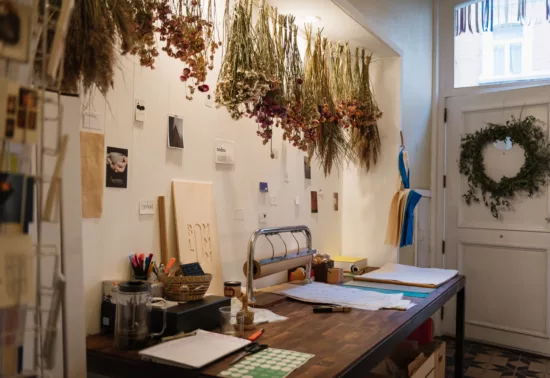In a world increasingly confronted with ecological and social challenges, the need for a sustainable and just transition is more urgent than ever. During the panel discussion “A Just Transition in a Turbulent World,” experts from various disciplines engaged in dialogue on the necessity of a structural shift in how we deal with the economy, the environment, and social justice.
Sustainable Development as a Core Principle
Professor Bernard Mazijn opened the debate with a thorough overview of the sustainability crisis. He emphasized that we can no longer speak of “soft sustainability”; instead, “hard sustainability” is needed to keep our planet livable. The focus must lie on an integrated approach in which ecology, economy, and social justice are brought together. This transition not only involves limiting ecological damage but also addressing social inequality.
Mazijn pointed to the "Triple Planetary Crisis": climate change, biodiversity loss, and environmental pollution. He stressed that six of the nine planetary boundaries have already been crossed, and urgent action is necessary. He called for policy coherence and structural transformation, with ecosystem restoration as a central focus.
The Doughnut Model as an Economic Alternative
Eva Smets, General Director of Oxfam Belgium, introduced the concept of the “doughnut economy.” This economic model, developed by British economist Kate Raworth, argues that we must operate within both an ecological ceiling and a social foundation. The challenge is to find a balance where everyone’s basic needs are met without exceeding ecological limits.
Smets criticized the current neoliberal capitalism, which sees macroeconomic growth as the primary indicator of success. She advocated for an economy driven by social justice and ecological sustainability, rather than by one-sided growth. According to her, a market economy can still function within a sustainable framework, as long as profit is not the sole objective.
Fair Trade and Sustainable Production
Philip Weiler, CEO of Fairtrade Belgium, highlighted fair trade as a concrete and feasible tool for change. He noted that the current economic model does not account for external costs such as environmental pollution and poor labor conditions. Fairtrade aims to make these costs visible and to ensure producers receive a fair price.
However, Bernard Mazijn pointed out that while such initiatives are commendable, they are still too small in scale. Despite the growth of fair trade, it still represents only a minor share of the market. The real challenge lies in scaling up such models so they become the norm rather than the exception.
The Role of Europe and International Cooperation
Another important topic was the role of Europe in this transition. Europe is often seen as a leader in sustainable legislation, such as the recent Corporate Sustainability Due Diligence Directive, which obliges companies to report and address social and environmental risks throughout their supply chains.
Nevertheless, Wies De Graeve, Director of Amnesty International Flanders, warned about double standards in European policy. Europe continues to engage in economic partnerships with countries that violate human rights, without drawing consistent consequences. He emphasized that structural change depends not only on legislation but also on pressure from civil society and grassroots movements.
Bottom-Up Action: The Power of Civil Society
A recurring theme in the discussion was the strength of citizen initiatives and civil society. Both Eva Smets and Wies De Graeve stressed that change must come from the bottom up. Human rights, fair trade, and ecological sustainability should not rely solely on the goodwill of companies or political leaders, but must be driven by collective action and activism.
An example of this is the growing role of cities and municipalities in sustainable transitions. Fairtrade Towns demonstrate that local governments can make a difference by implementing sustainable procurement policies and raising awareness among citizens.
Conclusion: Urgency and Complexity
The panel made it clear that the transition to a sustainable and just world is no easy task. It requires holistic policy choices, economic innovation, and broad societal engagement.
The urgency is great, but promising developments are also underway. By implementing alternative economic models, fair trade practices, and large-scale regulation, we can create a future in which both people and the planet take center stage. The question remains, however, how quickly we can achieve these essential changes in a world still heavily reliant on outdated economic and political structures.
This panel was organized in collaboration with the Festival of Equality. Many thanks to the panelists and the moderator.



